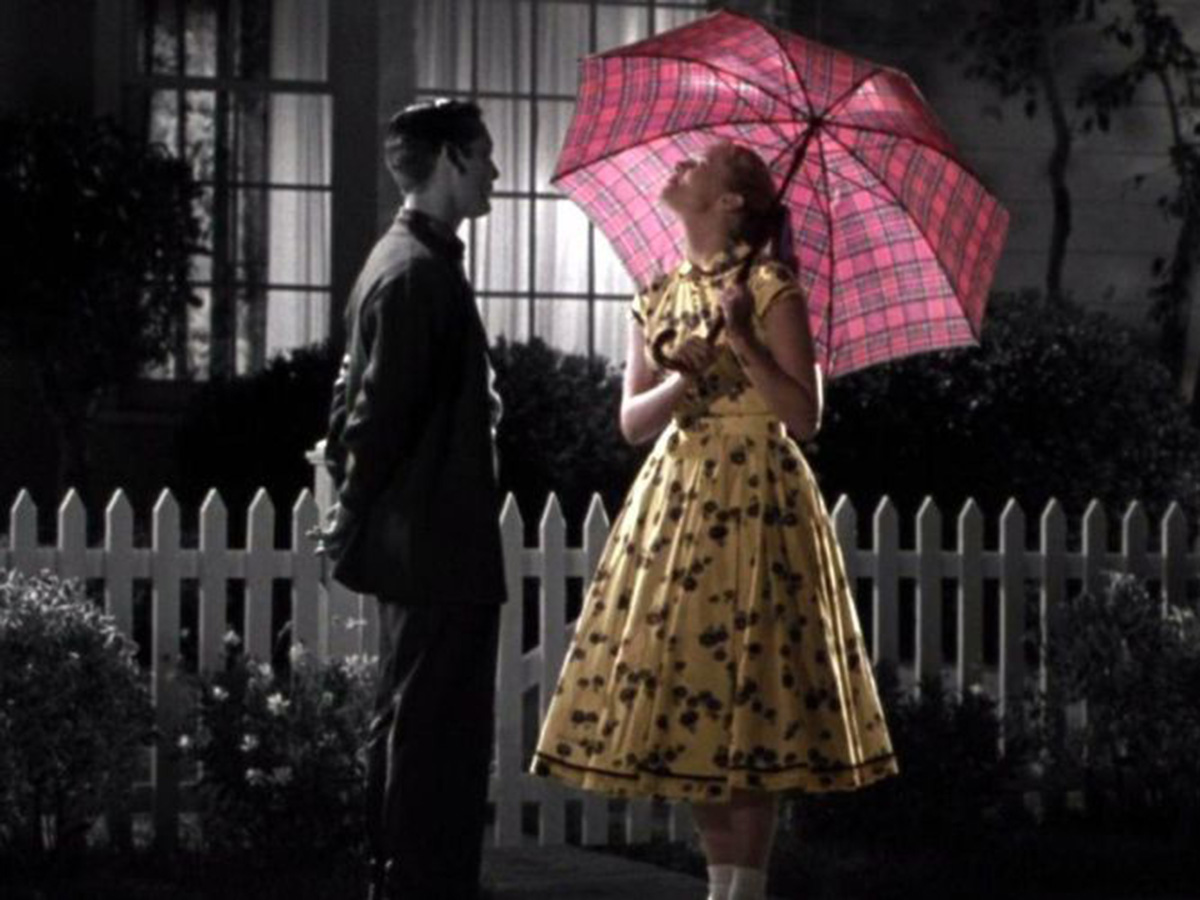
The trapped in TV land trope is one that has been explored many times over in film and television like “Stay Tuned,” “DramaWorld,” “Last Action Hero,” “Galaxy Quest,” “Wreck-It Ralph,” “The Truman Show,” “Space Jam” and even in one-off episodes of “Family Guy” and “The Simpsons.” It’s an incredibly fun subgenre of fantasy that creates hundreds of possibilities and often has the ability to break many of the standard cliques and tropes of traditional screen entertainment.
As our characters jump from TV show to TV show, video game to video game, or dimension to dimension, the humor and opportunity for world building is objectively infinite. In many bad films the fatigue of the world we find ourselves in becomes quickly apparent, as oftentimes the world that the screenwriters have built for us is not very interesting to begin with.
“Pleasantville,” the 1998 American fantasy comedy-drama chronicling the wild adventure of two teenage siblings who are suddenly transported into the TV universe. In a crazy series of events and no more than 10 minutes into the film, the two protagonists David (Toby Maguire) and his twin sister Jennifer (Reese Witherspoon) are beamed into a black and white 1958 sitcom entitled “Pleasantville.” The sitcom follows the everyday lives of the Parkers, a traditional American family with a working father, stay-at-home mom and two kids.
It’s an “Alice in Wonderland” fish-out-of water story set in a 1950s black and white America. A time of traditional conservative American values when the ideal of the nuclear family reigned supreme. But underneath this idyllic mythological America lies a deep underbelly of the misogyny, bigotry and creative repression.
“Pleasantville” is perfect for those moviegoers among us who like an intellectual challenge. A film as philosophically rich as “Pleasantville” leaves us with something to chew on once the curtains have come down. This is a film that can be discussed among friends for its philosophical implications, whose ideas can spark conversation and intellectual inquiry. A perfect example of this is the most famous and memorable scene from “Pleasantville,” of which the poster for the film is based, which makes a powerful biblical reference.
In the scene, David is gifted with an apple while on a date at Lover’s Lane with Margaret Henderson (Marley Shelton), creating a schism of art in their black-and-white dystopia. This is fascinating, as the traditional understanding of the Bible plays the story of the apple as a Pandora’s Box which, through the curiosity of women, releases evils into the world, and as John Milton put it, becomes a story of paradise lost. But in “Pleasantville” the apple is a celebration of art, as eating from the tree of knowledge and opening Pandora’s box is depicted as a celebration of man’s overthrow of a patriarchal world of repression.
The black and white world of “Pleasantville” represents a world devoid of creativity and individualized self-expression. A world devoid of art. A science fiction dystopia in which all art is equated with human emotions and both are seen as enemies of the state. For fans of science fiction, “Pleasantville” is a must-see. Its regime v. art themes are reminiscent of science fiction gems like “Equilibrium,” “The Giver” and “THX1138” in which art is equated with feeling human emotions and is suppressed by the government for fear that it will cause a challenge to the status quo.
“Pleasantville” is a reminder that art is the weapon that topples regimes. Art is the tool that builds empires. Art is the soul of man, which transcends time and leaves a piece of ourselves to the next generation. A love letter to our descendants, in the hopes that they will remember us and carry on the human legacy. Art brings the human race closer together, as if past and future generations are living as one, as we use art to communicate with our descendants as well as our ascendants.
“Pleasantville”’s plot, through a dystopian lens, reminds us that art is both a reflection of the world, while simultaneously being an influence upon it. Art influences life and life influences art. “Pleasantville”’s themes remind us that art is the face of the oppressed creature in the face of despots, bigotry and sexism. Art is the universal religion of mankind, the heart of a world often perceived as devoid of emotional integrity, and the soul in the face of seemingly soulless conditions.







